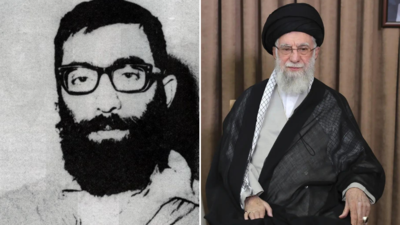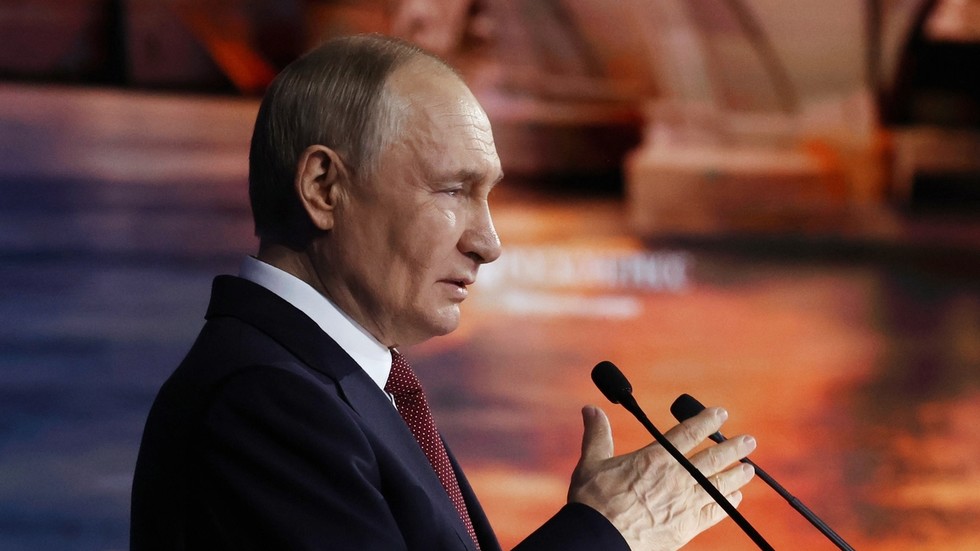
Iran ’SMASHES’ Israeli Military’s Intel Office In Tel Aviv; Big Attack After Beersheba Strikes
As Iran battles a waves of Israeli airstrikes targeting its nuclear infrastructure and military leadership, one man remains at the centre of the unfolding crisis: Supreme Leader Ayatollah Ali Khamenei.
At 86, he has outlasted presidents, weathered international sanctions, and crushed domestic uprisings. Now, with his regime’s regional proxy network weakened and his own survival reportedly under threat, Khamenei faces the most serious challenge of his long reign.Rarely seen in public and yet ever present in Iran’s decision-making, Khamenei exerts unmatched authority across all branches of the state. He commands the military, directs foreign policy, shapes the nuclear programme, and controls vast economic assets.
To supporters, he is the embodiment of revolutionary resolve; to critics, the architect of repression and confrontation.From secret bunkers to literary praise for Les Misérables, Khamenei remains a deeply enigmatic figure.
Here are ten interesting facts about Iran’s most influential man:
From prisoner to president
Born in 1939, Khamenei was repeatedly jailed under the US-backed Shah for his political activism. A close ally of Ruhollah Khomeini, he rose through the clerical ranks during the revolution and became Iran’s president in the 1980s.
When Khomeini died in 1989, Khamenei though lacking the senior religious credentials expected for the role, was elevated to Supreme Leader. His presidency and wartime leadership had earned him enough support among key factions to secure the top post.
The real power behind the presidency
Although Iranian presidents often dominate headlines particularly firebrands like Mahmoud Ahmadinejad it is Khamenei who ultimately decides policy. He holds the final say over the military, judiciary, foreign relations, and even who can run for office.
Presidents may act as public faces, but no major decision proceeds without the Supreme Leader’s approval. Western leaders, including Trump and Bush, have misjudged the power dynamics in Iran by focusing too heavily on elected figures.
Architect of Iran’s 'axis of resistance'
Khamenei has long positioned Iran as a regional counterweight to US, Israeli, and Saudi influence. He helped build and maintain a vast network of proxy forces across the Middle East, including Hezbollah in Lebanon, militias in Iraq, the Houthis in Yemen, and Hamas in Gaza.
Known as the “Axis of Resistance,” this coalition allowed Iran to exert influence without direct confrontation. But recent Israeli military actions have badly damaged this network, especially in Syria and Gaza.
Relentless against domestic dissent
Internally, Khamenei has responded harshly to political opposition and protest movements. From the reformist wave of the late 1990s to the 2009 Green Movement and the 2022 protests over Mahsa Amini’s death, his security apparatus particularly the Revolutionary Guard has cracked down ruthlessly.
Mass arrests, killings, and alleged torture have been reported, with each wave of dissent testing but not breaking his grip on power.
Supreme religious power with political priorities
While officially the highest clerical authority in Iran, Khamenei lacks the religious gravitas of his predecessor, Khomeini. Many Shiites in Iran and abroad turn instead to Grand Ayatollah Ali Sistani in Iraq. Yet, Khamenei has compensated by transforming the Supreme Leader’s office into a powerful political hub, centralising control over Iran’s fragmented system and ensuring that all levers of power answer to him.
A hidden billion-dollar empire
According to a Reuters investigation, Khamenei controls a vast economic empire worth an estimated $95 billion through an organisation called Setad. Though there is no evidence he enriches himself personally, Setad consolidates wealth and influence for the regime, managing assets across oil, telecoms, finance, and even ostrich farming. It has also been accused of seizing properties from religious minorities and exiles under dubious legal claims.
The Revolutionary Guard: His private army
Under Khamenei’s leadership, the Islamic Revolutionary Guard Corps (IRGC) has become Iran’s most powerful institution. Tasked with defending the Islamic system, the IRGC controls Iran’s missile and drone programmes and has deep economic interests. The Quds Force, its external wing, manages Iran’s regional operations. In return for loyalty, Khamenei has allowed the Guard significant autonomy and influence in both business and politics.
A cautious but calculated leader
Though he often uses fiery rhetoric, Khamenei is seen by analysts as more pragmatic than many of Iran’s presidents. He has oscillated between engaging with the West and pushing hardline resistance. In 2003, he issued a fatwa declaring nuclear weapons un-Islamic, but he still backs Iran’s enrichment programme. His decisions are often guided by a cold calculation of what best preserves the regime and his position atop it.
Rare public appearances, constant control
Khamenei is reclusive, with carefully managed public appearances and tightly guarded movements. His personal security is handled by a special IRGC unit. During recent Israeli strikes on Tehran, reports claimed he was moved to a secret bunker to remain in contact with military leadership. Despite his physical absence from the frontline, his role as Iran’s supreme commander remains undiminished.
Cultural interests amid geopolitical turmoil
Despite his hardline politics and reclusive persona, Ayatollah Khamenei has often spoken about the power of literature particularly Victor Hugo’s Les Misérables. He once said: “Les Misérables is miraculous among all other novels. I have recommended all young individuals repeatedly to read the novel. Les Misérables is in a way a sociological work of art: it’s a record of history. It’s a significant book: a book about divinity, kindness, compassion, and love.
”

 7 hours ago
1
7 hours ago
1









